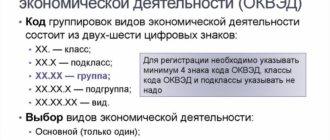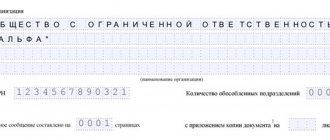What is the essence of administrative suspension of activities?
Administrative suspension of activities is a punishment for violating the law under Art. 3.12 Code of Administrative Offenses of the Russian Federation.
An entrepreneur is prohibited from working in a specific premises, providing services or trading for a period of up to three months. They immediately tell you what violations need to be eliminated.
For example, a pizzeria is closed due to noisy ventilation not in accordance with Sanpin. This means that the entrepreneur must resolve the issue with the noise level.
The business is put on hold by a court decision. Rospotrebnadzor, the Ministry of Emergency Situations or the migration service go to court after an unscheduled inspection - it depends on the violation. They check based on a complaint from a client, employee or competitor. Stopping operations in a small business is always the result of someone’s complaint.
After the court decision, bailiffs come to the entrepreneur within 24 hours. They seal doors and windows, put seals on cash registers, refrigerators, and stoves. If they are not allowed into the premises, the bailiffs call the police.
The bailiffs draw up an act of suspension of activities. From this day the deadline is counted.
A business can be closed even before trial if there is a danger of an epidemic or disaster. This is called a temporary ban on activities under Art. 27.16 Code of Administrative Offenses of the Russian Federation. The temporary ban will be counted towards the period of suspension of activities.
When applying seals, bailiffs must not damage the finish, locks or equipment, turn off the refrigerator with food, or do any other damage. This is said in Art. 32.12 Code of Administrative Offenses of the Russian Federation. If employees spoil something, you can recover money.
Then the entrepreneur takes care of the violations, and the bailiffs keep an eye on them. People enter the sealed room by agreement with them.
After eliminating the violation, the entrepreneur continues to work - the punishment is lifted.
How can an entrepreneur protect himself during an administrative inspection?
How to prepare for a Rospotrebnadzor inspection
Registration of employees for this period
In case of voluntary cessation of activities, it is necessary to resolve the issue of staff remuneration. After all, if at least one employee is officially registered in the company, then he needs to receive a salary, pay contributions to extra-budgetary funds and taxes. You should not force specialists to arrange for care at their own request due to possible difficulties with labor inspectors.
In the drafted order to freeze activities, the manager must indicate the reason (financial difficulties) and notify all employees. Due to the fact that they will not receive money for a long time, they themselves will write a letter of resignation. And the remaining people can be sent on unpaid leave.
Why are activities suspended?
A small business faces suspension for:
— violation of sanitary regulations in catering, hairdressing salons;
— garbage removal not in accordance with sanitary regulations;
— violation of fire safety in the premises;
— dangerous working conditions for sellers and craftsmen;
— trade in goods without age markings;
- labor of foreigners without a work permit or failure to notify the migration service;
- concerts with obscenities in a bar.
For example, cafes and restaurants are often closed under Art. 6.6 of the Code of Administrative Offenses of the Russian Federation for violations of sanitary regulations in the kitchen.
They don't close for any violation. Inspectors must see a threat to people, order, morality or nature. The principle is this: if you don’t close it now, it will get worse later.
For minor violations they are not closed, but fined.
Fire safety requirements in simple words
Submit reports in three clicks
Elba will take over the accounting. The service will prepare reports and send them via the Internet. It will calculate taxes, reduce it by contributions - and you will receive ready-made payments for payment.
Try 30 days free Gift for new entrepreneurs The promotion is valid for individual entrepreneurs under 3 months old
Disqualification
This sanction is considered quite serious. Punishment is also imposed by court decision. The legislation allows this sanction to be used in cases where the head of the enterprise has previously been held accountable for violating labor standards, and during a repeat inspection it was revealed that the circumstances had not been eliminated or a similar offense had been committed. Disqualification involves a ban on the subject from carrying out activities for 1-3 years. According to Art. 5.27 of the Administrative Code, a citizen during this period cannot perform leadership functions in non-profit and commercial structures. Simply put, he does not have the right to be a director, head of a branch/representative office or their deputy. When a court ruling on disqualification is made, the employee must be released from a managerial position and transferred to a job that is not related to the performance of a managerial function.
Is it possible to choose suspension of activities instead of a fine?
For many violations, the law offers two penalties: a fine or suspension of activities. The punishment is chosen by the court.
It is often cheaper for an entrepreneur to endure a business shutdown than to pay a fine.
For example, for hiring foreigners in Moscow without a work permit, a legal entity faces a fine of up to 1,000,000 rubles or suspension of activities under Art. 18.15 Code of Administrative Offenses of the Russian Federation.
In comparison with the maximum fine, the loss of profit and the hassle of obtaining permission from the migration service will seem like a small thing to many.
It is impossible to replace a fine with suspension of activities.
It is believed that suspension is more severe than a fine - Art. 3.12 Code of Administrative Offenses of the Russian Federation. Business stops when there is danger. If officials do not see the threat of mass poisonings, fires or a decline in morality, the business is fined. The rule is strange: the punishment is easier, but the entrepreneur is more painful.
It is useless to appeal the fine and ask for a suspension - you will lose. Such a replacement is prohibited by clause 18.2 of the Resolution of the Plenum of the Supreme Arbitration Court of the Russian Federation dated June 2, 2004 No. 10.
The businesswoman was renovating the facade of the store. She hired a young man from Uzbekistan as an auxiliary worker. I didn't check my work permit.
Someone complained to the migration service and the entrepreneur was fined 250,000 rubles.
The woman complained to the court and asked for a replacement to suspend her activities. They say that during this time a permit will be issued.
She was refused a replacement, explaining the following. Stopping work is a last resort. You don’t understand, a fine is a light punishment, you’re lucky. Moreover, the fine was issued in the smallest amount.
Case No. A06-6411/2012
How to resume the activities of an “abandoned” limited liability company
To answer the question, the following documents and regulations were used:
- Tax Code of the Russian Federation (TC RF);
- Code of the Russian Federation on Administrative Offenses (COAP RF);
- Federal Law of 08.08.2001 No. 129-FZ “On state registration of legal entities and individual entrepreneurs”;
- Resolution of the Federal Arbitration Court of the Central District dated March 28, 2012 in case No. A09-5167/2011;
- Resolution of the Federal Arbitration Court of the East Siberian District dated July 24, 2007 No. A33-15360/06-F02-4653/07 in case No. A33-15360/06.
Based on the information provided, we consider it necessary to report the following.
First of all, we recommend that you make sure that the legal entity you are interested in still exists. Back in 2005, in order to clear the Unified State Register of Legal Entities (USRLE) from abandoned companies and shell companies, the institution of administrative liquidation of legal entities was introduced. In accordance with Art. 21.1. Federal Law of 08.08.2001 No. 129-FZ “On State Registration of Legal Entities and Individual Entrepreneurs” is an organization that, by the time the registration authority made the decision, which will be discussed below, had not conducted any activities for one year and had not submitted reports established by current legislation, has not carried out a single operation on at least one of its bank accounts, may be liquidated in a simplified (administrative) manner.
To terminate the activities of such an organization, the registering authority (tax office) publishes it in the appropriate press (magazine “Bulletin of State Registration” - Order of the Federal Tax Service of the Russian Federation dated June 16, 2006 No. SAE-3-09 / [email protected] “On ensuring publication and publication of information on state registration of legal entities in accordance with the legislation of the Russian Federation on state registration").
If, within the prescribed period (three months from the date of publication of the decision on the upcoming exclusion of a legal entity from the Unified State Register of Legal Entities), the tax authority makes an entry in the Unified State Register of Legal Entities about the termination of the organization’s activities. Such an exception can be appealed by interested persons named in the law within a year from the day they learned or should have learned about the violation of their rights.
Subclause 4, clause 1, art. 23 of the Tax Code of the Russian Federation obliges taxpayers, which include the organization specified in the question, to submit tax returns (calculations) to the tax authorities in the prescribed manner, if such an obligation is established by the legislation on taxes and fees. It is impossible to determine from the question what tax system the limited liability company is on, and therefore it is impossible to compile a complete list of documents to be sent to the tax office. For the general taxation system, such documents may include reporting on value added tax, corporate income tax, corporate property tax, and financial statements. For organizations that are on a simplified taxation system, this is a book of income and expenses, a tax return for a single tax paid in connection with the taxpayer’s use of a simplified taxation system; for taxpayers paying a single tax on imputed income, the law provides its own documents.
Chapter 16 of the Tax Code of the Russian Federation is devoted to types of tax offenses and responsibility for their commission.
Entering information about the new general director into the Unified State Register of Legal Entities is regulated by Federal Law No. 129-FZ of August 8, 2001 “On State Registration of Legal Entities and Individual Entrepreneurs.” In accordance with Art. 17 of the said Federal Law, a notarized application in the established form (P14001) must be submitted to the registration authority. The circumstances under which the registration authority may refuse state registration of amendments to the Unified State Register of Legal Entities are listed in Art. 23 of the Federal Law of 08.08.2001 No. 129-FZ “On state registration of legal entities and individual entrepreneurs”. This list is exhaustive and the presence of debts on taxes, fees, and fines is not indicated as a reason for refusal.
Summary
For an organization that has not operated for three years and has not submitted reports to the tax authorities, the liability may be as follows.
Failure to submit a tax return on time, provided that there are no taxes payable in accordance with the specified declaration, in accordance with Art. 119 of the Tax Code of the Russian Federation entails liability in the amount of one thousand rubles.
Article 120 of the Tax Code of the Russian Federation provides for liability for gross violation of the rules for accounting for income and expenses. The specified violation committed during more than one tax period (year) entails a fine in the amount of thirty thousand rubles. Based on the text of the question, we assume that due to the fact that no activity was carried out, there was no understatement of the tax base. A gross violation of the rules for accounting for income and expenses and objects of taxation is the absence of primary documents, the absence of invoices, tax accounting registers, systematic (twice or more times during a calendar year) untimely or incorrect reflection in accounting accounts, in tax accounting registers and in reporting business transactions, cash, tangible assets, intangible assets and financial investments of the taxpayer.
If, as part of a tax audit, the tax authority requests documents of interest to it about the activities of the organization and they are not presented, then the fine for failure to provide documents at the request of the tax authority will be in accordance with Art. 126 of the Tax Code of the Russian Federation two hundred rubles for each unsubmitted document.
Also, officials of the organization (general director) may be held administratively liable for offenses provided for in Chapter 15 of the Code of Administrative Offenses of the Russian Federation.
It is worth considering that in accordance with paragraph 4 of Art. 114 of the Tax Code of the Russian Federation, if there are several tax offenses for which the statute of limitations (three years) has not expired, the legal entity is subject to a fine for each offense separately.
Art. 112 of the Tax Code of the Russian Federation provides a list of circumstances mitigating liability. This list is not exhaustive. Thus, failure to conduct business activities by an organization can be recognized as a mitigating circumstance leading to a reduction in the fine (Resolution of the Federal Arbitration Court of the Central District dated 03/28/2012 in case No. A09-5167/2011, Resolution of the Federal Arbitration Court of the East Siberian District dated 07/24/2007 No. A33-15360/06-F02-4653/07 in case No. A33-15360/06).
A change of general director is possible both after problems with the organization’s reporting are eliminated, and before they are eliminated, because the presence of debt in an organization is not a basis for refusal to perform registration actions in relation to it.
Before starting the procedure for resuming the activities of an organization, it is necessary to make sure that the organization has not ceased its activities by decision of the tax authority. You can verify this using the information system located on the website of the Federal Tax Service www.nalog.ru.
Would you like to receive legal advice on your matter? Call now!
What happens if you quietly wait out the suspension?
When the stop period expires, the official who conducted the inspection will come. Now his task is to check the elimination of violations.
For unresolved violations, the official will fine you under clause 1 of Art. 19.5 Code of Administrative Offenses of the Russian Federation. The fine is small: individual entrepreneurs up to 500 ₽, legal entities up to 20,000 ₽. But the matter will not end with a fine.
Formally, after the end of the stop, you can continue to work even with violations. But the business will remain under the control of officials. Sooner or later a new inspection will come, they will close it again, and then fine you. Like in the wheel of samsara.
An official can also close your dangerous business permanently through the court under Art. 1065 of the Civil Code of the Russian Federation. Usually it is prohibited to work in a specific premises or trade in a certain product. But such a ban for small businesses could be a complete end.
What to do with wages, taxes and rent while you can’t work?
Stopping work is an entrepreneur's problem. Payments to suppliers, landlords, taxes and personnel contributions are not exempt.
Employees cannot be fired. But there are slight concessions on wages.
When a business is put on hold due to dangerous workplaces, the employer is obliged to pay the average wage under Art. 220 Labor Code of the Russian Federation. During this time, the employee can be transferred to another job. For example, the administrator for issuing orders in an online store should be tasked with receiving customer calls. An order is issued regarding the transfer.
If sanitary, fire and other rules are violated, an order for downtime is issued. During downtime, employees do not work, but receive two-thirds of their average earnings. This is what it says in Art. 157 Labor Code of the Russian Federation. Or you can transfer to another job, but with average earnings.
Zero reporting
No matter how old an enterprise is, tax authorities still must receive their reports on time. Reporting for “dormant” organizations is called zero (zero). Filling it out corresponds to the name, but has its own nuances. If the responsible executor does not have the ability to handle this on his own, it is wiser to contact a specialized company with accounting services.
Proper suspension of the operation of an LLC allows you to remain a full-fledged legal entity as part of the Unified State Register of Legal Entities, but at the same time legally not pay taxes and fees, and not incur any expenses. This will help you get through difficult times, a crisis in the state or personal problems.
If you find an error, please select a piece of text and press Ctrl+Enter.
Didn't find the answer to your question? Find out how to solve your particular problem - fill out the form below or call right now: (ext. 692) (Moscow) +7 (ext. 610) (St. Petersburg) +8 (ext. 926) (Russia)
«>
Sep 10, 2019adminlawsexp
How to cancel the suspension of activities ahead of schedule?
Business is stopped to remove the threat. If the violations have been removed, you can open for clients without waiting for the end of the term. But you will need formalities and a little time.
The entrepreneur calls the official again. He records that the violations have been dealt with and issues a report.
Next, the entrepreneur submits a petition to the court for early termination of the suspension of activities and attaches the act.
The court will consider the petition within five days. If there are no questions, they will be allowed to continue working. And you can breathe out.
Drawing up a protocol on an administrative offense
If a violation of the law is detected, an employee of the regulatory authority immediately draws up an administrative protocol on the violation. If you need to find out additional information, it is compiled within 2 days from the moment the offense was discovered.
The registration procedure is provided for in Art. 28.2. Code of Administrative Offenses of the Russian Federation. An authorized representative of the organization in respect of which the document is being drawn up must be familiar with it. The company's management has the right to give explanations and comments. They are drawn up in writing and attached to the protocol.
The protocol must indicate the harm caused or the threat of causing it, as well as the facts confirming this. In their absence, the company cannot be suspended.
- The document itself is signed by the inspector and a representative of the business entity. A copy is handed over for signature.
- When drawing up a protocol, a temporary ban on activities may be introduced until the case is considered in court.
- After drawing up the administrative document, the official prepares all the materials to send the case to the court.









